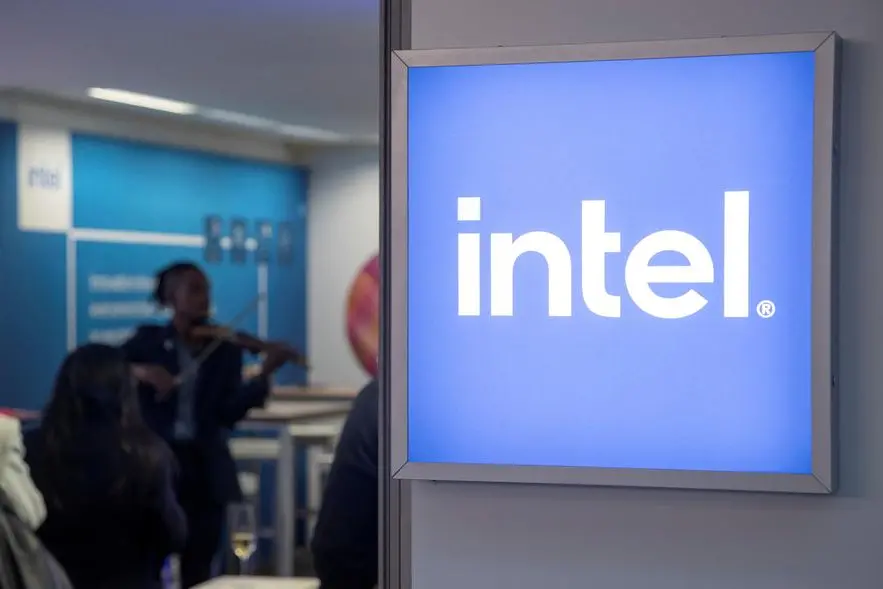PHOTO
SINGAPORE - Intel's push into software is going well and the company could have cumulative software revenue of $1 billion by the end of 2027, Chief Technology Officer Greg Lavender told Reuters.
Intel made north of $100 million in software revenue in 2021, the year Lavender was brought in from cloud computing company VMware by CEO Pat Gelsinger to steer the chipmaker's software strategy. Since then, Intel has bought three software companies.
"I have a goal of getting to $1 billion of software and developer cloud subscription revenue," he said. "I think I'm on track to hit this goal by the end of 2027 ... maybe sooner."
Intel, which generated $54 billion in revenue in 2023, offers a range of software services and tools for hire, ranging from cloud computing to artificial intelligence.
Lavender said his strategy is to focus on providing services in AI, performance and security and the company has been investing in all three areas.
Separately, Lavender said Intel is seeing "lots of demand" for its upcoming Gaudi 3 chip, which he believes can help the company take second place in the AI chip market.
Intel and Advanced Micro Devices' AI processors have so far not made much headway into denting the dominance of market leader Nvidia, which controlled roughly 83% of the data center chip market in 2023.
Lavender said Intel is supporting open-source initiatives seeking to build software and tools that will be able to power a wide range of AI chips and expects further breakthroughs in coming months.
Part of Nvidia's success is linked to its software CUDA, which keeps developers tied to Nvidia chips. France's antitrust regulator is set to charge Nvidia for suspected anti-competitive behaviour, sources have said. The watchdog has voiced concerns about the generative AI sector's dependence on CUDA.
Intel is part of the UXL Foundation, a consortium of tech companies developing an open-source project that aims to make computer code run on any machine, regardless of what chip and hardware powers it.
Other members include Qualcomm, Samsung Electronics and Arm Holdings.
Lavender added that Intel is contributing to Triton, an OpenAI-led initiative to build an open-source programming language designed to enhance code efficiency across AI chips. AMD and Meta are also supporting the project.
Triton is already running on Intel's existing graphics processing units and will work on the company's next generation of AI chips.
"Triton is going to level the playing field," he said.
(Reporting by Fanny Potkin in Singapore; Additional reporting by Max Cherney in San Francisco; Editing by Anne Marie Roantree and Edwina Gibbs)





















